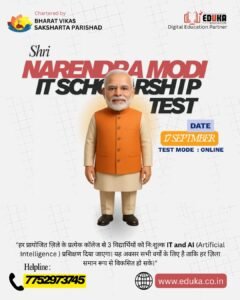Advance Diploma in Gaming and Virtual Reality
Course Outline
An Advanced Diploma in Gaming and Virtual Reality typically encompasses a comprehensive curriculum designed to equip students with the necessary skills to excel in the gaming and VR industries. Here is an outline of the course, structured to be completed within one year:
Course Duration
- Total Duration: 1 year
- Modules: Each module can range from 4 to 8 weeks
- Total Hours: Approximately 600-800 hours

1. Introduction to Gaming and VR
- Duration: 2 weeks
- Topics Covered:
- Overview of the gaming and VR industries
- History and evolution of gaming and VR
- Key concepts and terminology
2. Fundamentals of Game Design
- Duration: 6 weeks
- Topics Covered:
- Principles of game design
- Game mechanics, dynamics, and aesthetics
- Storytelling and narrative development
- Level design and user experience
- Software/Tools:
- Unity
- Unreal Engine
3. Introduction to Programming for Games and VR
- Duration: 8 weeks
- Topics Covered:
- Basics of programming (C++, C#, or Python)
- Object-oriented programming
- Scripting for games
- Introduction to VR development
- Software/Tools:
- Visual Studio
- Unity
- Unreal Engine
4. 3D Modeling and Animation
- Duration: 8 weeks
- Topics Covered:
- Basics of 3D modeling
- Texturing, rigging, and animation
- Character design and animation
- Environment and asset creation
- Software/Tools:
- Blender
- Autodesk Maya
- 3ds Max
5. Game Engines and Development
- Duration: 8 weeks
- Topics Covered:
- Introduction to game engines
- Unity: Interface, components, and scripting
- Unreal Engine: Interface, Blueprints, and scripting
- Building and deploying simple games
- Software/Tools:
- Unity
- Unreal Engine
6. Virtual Reality Development
- Duration: 8 weeks
- Topics Covered:
- VR hardware and software
- Developing VR experiences
- User interaction and immersion
- VR performance optimization
- Software/Tools:
- Unity
- Unreal Engine
- Oculus SDK
- HTC Vive SDK
7. Advanced Game Development
- Duration: 8 weeks
- Topics Covered:
- Advanced game mechanics
- AI and pathfinding
- Multiplayer game development
- Optimization and debugging
- Software/Tools:
- Unity
- Unreal Engine
- Photon Unity Networking (PUN)
8. Advanced VR Development
- Duration: 8 weeks
- Topics Covered:
- Advanced VR interaction techniques
- Integrating VR with AR
- VR for different platforms (Oculus, HTC Vive, etc.)
- VR usability and accessibility
- Software/Tools:
- Unity
- Unreal Engine
- ARKit/ARCore
9. Audio for Games and VR
- Duration: 4 weeks
- Topics Covered:
- Fundamentals of sound design
- Creating and integrating sound effects
- Background music and audio loops
- 3D audio for immersive experiences
- Software/Tools:
- Audacity
- FMOD
- Wwise
10. Project Management and Collaboration
- Duration: 4 weeks
- Topics Covered:
- Project planning and management
- Agile and Scrum methodologies
- Team collaboration tools
- Version control with Git
- Software/Tools:
- Jira
- Trello
- GitHub
11. Final Project
- Duration: 8 weeks
- Topics Covered:
- Conceptualizing and planning a game or VR project
- Developing the project from start to finish
- Playtesting and debugging
- Presenting the final project
- Software/Tools:
- All previously used tools and software
Conclusion
This Advanced Diploma in Gaming and Virtual Reality is designed to provide students with a well-rounded education in both game and VR development, covering everything from fundamental concepts to advanced techniques. The course aims to prepare students for careers in the gaming and VR industries by equipping them with the skills needed to create immersive and engaging









